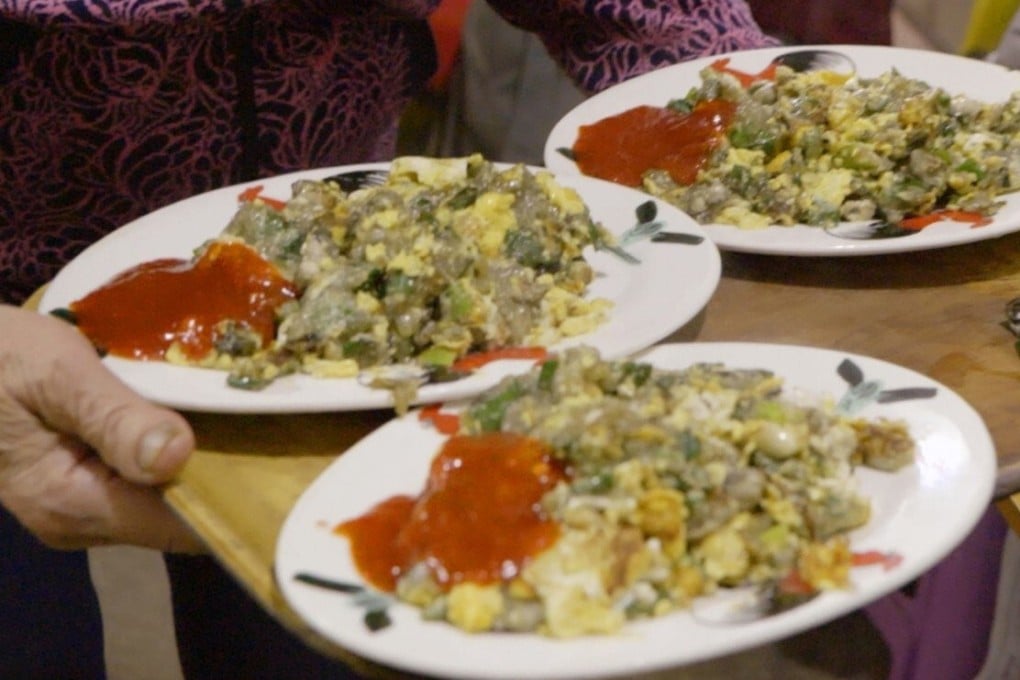How oyster omelettes helped the Chinese win a war
- Oyster omelettes, or pancakes, are a street food staple in Taiwan and Xiamen. Legend has it that the dish originated in the throes of battle
- Quality oysters are key to the dish, but one Xiamen chef says they’re increasingly harder to find

The year is 1661. A Chinese general named Koxinga is sent to Taiwan to fend off the Dutch, who have taken over the island.
In an effort to limit the food supply, the Dutch hid rice from the Chinese army. Desperate for food, Koxinga finds oysters on the beach, coats them in sweet potato starch, and deep-fries them for his men. The army is saved from hunger and later wins the war against the Dutch.
A coastal city in southeastern China, Xiamen lies just across a narrow strait from Taiwan. It has a maritime climate, which means it enjoys mild weather year round. Seafood is king, and oyster pancakes – also called oyster omelettes – are a local speciality, usually served kerbside on stools.
“Basically, whenever there are oysters, we’ll eat them,” says Wang Xishan, owner of Lianhuan Hailijian, arguably the city’s most famous oyster pancake shop. “It doesn’t matter what time of year it is.”
Every family has its own take on the dish, but the basic recipe usually entails oysters stir-fried with a batter made from sweet potato and eggs. Garlic shoots and other accoutrements might be thrown in as well. It’s a hearty combination.

“A plate of oyster pancakes, a bowl of rice, soup, and you’re full,” Wang says.
Locals love to pair the dish with sweet chilli sauce. Wang says people in Xiamen prefer milder flavours because of the climate. The average annual high is a balmy 25 degrees Celsius (78 degrees Fahrenheit).
